
Isoroku Yamamoto was a Marshal Admiral of the Imperial Japanese Navy (IJN) and the commander-in-chief of the Combined Fleet during World War II. Yamamoto held several important posts in the Imperial Navy, and undertook many of its changes and reorganizations, especially its development of naval aviation. He was the commander-in-chief during the early years of the Pacific War and oversaw major engagements including the attack on Pearl Harbor and the Battle of Midway. Yamamoto was killed in April 1943 after American code breakers identified his flight plans, enabling the United States Army Air Forces to shoot down his aircraft.

Tora! Tora! Tora! is a 1970 epic war film that dramatizes the events leading up to the Japanese attack on Pearl Harbor in 1941, from the American and Japanese positions. The film was produced by Elmo Williams and directed by Richard Fleischer, Toshio Masuda and Kinji Fukasaku, and stars an ensemble cast including Martin Balsam, Joseph Cotten, So Yamamura, E.G. Marshall, James Whitmore, Tatsuya Mihashi, Takahiro Tamura, Wesley Addy, and Jason Robards. It was Masuda and Fukasaku's first English-language film, and first international co-production. The tora of the title, although literally meaning "tiger", is actually an abbreviation of a two-syllable codeword, used to indicate that complete surprise had been achieved.
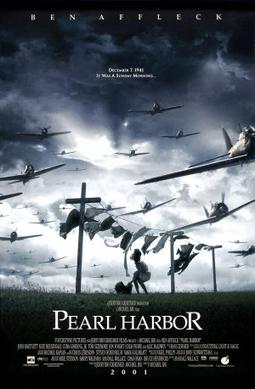
Pearl Harbor is a 2001 American romantic war drama film directed by Michael Bay, produced by Bay and Jerry Bruckheimer and written by Randall Wallace. It stars Ben Affleck, Kate Beckinsale, Josh Hartnett, Cuba Gooding Jr., Tom Sizemore, Jon Voight, Colm Feore, and Alec Baldwin. The film features a heavily fictionalized version of the attack on Pearl Harbor by Japanese forces on December 7, 1941, focusing on a love story set amidst the lead up to the attack, its aftermath, and the Doolittle Raid.

Husband Edward Kimmel was a United States Navy four-star admiral who was the commander in chief of the United States Pacific Fleet (CINCPACFLT) during the Japanese attack on Pearl Harbor. He was removed from that command after the attack, in December 1941, and was reverted to his permanent two-star rank of rear admiral due to no longer holding a four-star assignment. He retired from the Navy in early 1942. The United States Senate voted to restore Kimmel's permanent rank to four stars in 1999, but President Clinton did not act on the resolution, and neither have any of his successors.
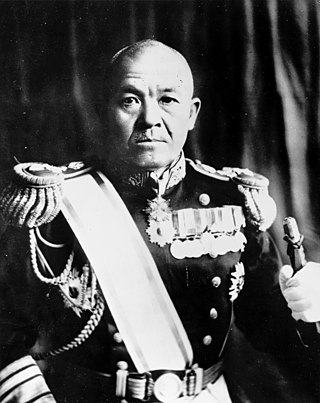
Chūichi Nagumo was an admiral in the Imperial Japanese Navy (IJN) during World War II. Nagumo led Japan's main carrier battle group, the Kido Butai, in the attack on Pearl Harbor, the Indian Ocean raid and the Battle of Midway. He never recovered from the crushing defeat at Midway, and committed suicide during the Battle of Saipan.
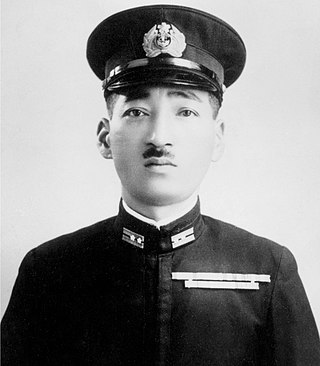
Mitsuo Fuchida was a Japanese captain in the Imperial Japanese Navy Air Service and a bomber observer in the Imperial Japanese Navy before and during World War II. He is perhaps best known for leading the first wave of air attacks on Pearl Harbor on 7 December 1941. Working under the overall fleet commander, Vice Admiral Chūichi Nagumo, Fuchida was responsible for the coordination of the entire aerial attack.

Midway, released in the United Kingdom as Battle of Midway, is a 1976 American war film that chronicles the Battle of Midway, a turning point in the Pacific Theater of Operations of World War II. Directed by Jack Smight and produced by Walter Mirisch from a screenplay by Donald S. Sanford, the film starred Charlton Heston and Henry Fonda, supported by a large international cast of guest stars including James Coburn, Glenn Ford, Ed Nelson, Hal Holbrook, Robert Webber, Toshiro Mifune, Robert Mitchum, Cliff Robertson, Robert Wagner, Pat Morita, Dabney Coleman, Erik Estrada and Tom Selleck.
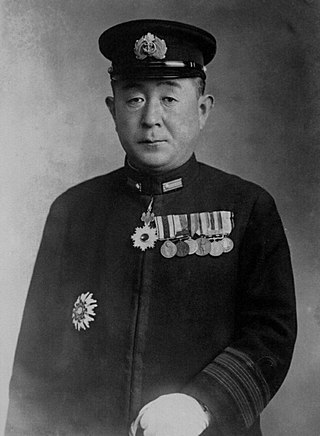
Tamon Yamaguchi was a rear admiral in the Imperial Japanese Navy who served during the Second Sino-Japanese War, and in the Pacific War during World War II. Yamaguchi′s carrier force was part of the attack on Pearl Harbor. He subsequently participated in the Battle of Midway, where he was killed in action, choosing to go down with the aircraft carrier Hiryū when she was scuttled after being crippled by aircraft from USS Enterprise and USS Yorktown.

Ibō Takahashi was an admiral in the Imperial Japanese Navy during World War II.

Hiroyuki Agawa was a Japanese author. He was known for his fiction centered on World War II, as well as his biographies and essays.
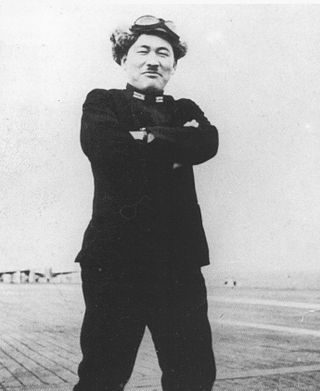
Shigekazu Shimazaki, was a Japanese career officer in the Imperial Japanese Navy Air Service during World War II.
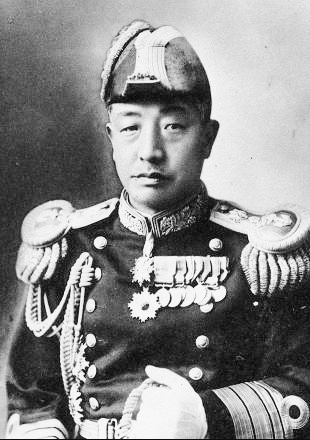
Kōichi Shiozawa was an admiral in the Imperial Japanese Navy during the Second Sino-Japanese War. The literary critic Rinsen Nakazawa was his older brother.
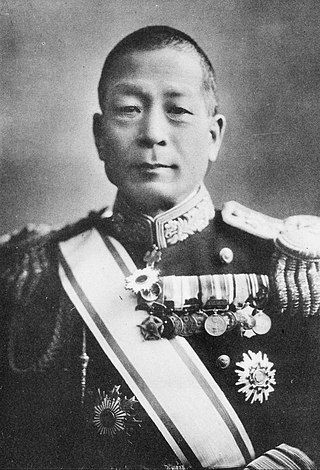
Zengo Yoshida was an admiral in the Imperial Japanese Navy.
The Pacific War is a series of alternate history novels written by Newt Gingrich and William R. Forstchen with Albert S. Hanser. The series deals with the Pacific War between the United States of America and the Empire of Japan. The point of divergence is the decision of Admiral Isoroku Yamamoto, commander-in-chief of the Japanese Combined Fleet, to take personal command of the 1st Air Fleet for the attack on Pearl Harbor, rather than delegate it to Adm. Chūichi Nagumo.

Storm Over the Pacific is a 1960 Eastmancolor Japanese war film directed by Shūe Matsubayashi. The story is an account of a young Japanese bombardier, Lt. Koji Kitami stationed aboard the Hiryu and his participation in two battles in the Pacific during World War II, the attack on Pearl Harbor and the Battle of Midway.
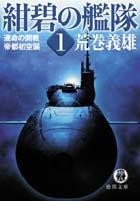
Konpeki no Kantai is a Japanese alternate history series produced by J.C.Staff. The series focuses on both a technologically-advanced Imperial Japanese Navy and a radically-different World War II that were brought about by Admiral Isoroku Yamamoto's revival by unexplained circumstances. Both the published books and the original video animation (OVA) series are also notable for using the Imperial Japanese calendar, instead of the Western calendar, in denoting the years in which the events of the series take place. It also spawned a 1997 OVA side story, Kyokujitsu no Kantai, one manga sequel, and two turn-based strategy games for the PC-FX and the Super Famicom.

Isoroku is a 2011 Japanese biographical film about Isoroku Yamamoto. Other English home media titles of the film are The Admiral, and Admiral Yamamoto. English titles not used in home video releases are Yamamoto Isoroku, the Commander-in-Chief of the Combined Fleet and Admiral Isoroku.
Imperial Navy is a 1981 Japanese war film directed by Shue Matsubayashi. The film is a retelling of the downfall of Japan's Imperial Navy during World War II.

Midway is a 2019 war film about the Battle of Midway, a turning point in the Pacific Theater of World War II. The film was directed by Roland Emmerich, who also produced the film with Harald Kloser, and was written by Wes Tooke. The film stars Ed Skrein, Patrick Wilson, Luke Evans, Aaron Eckhart, Nick Jonas, Mandy Moore, Dennis Quaid, Tadanobu Asano, Darren Criss, and Woody Harrelson.
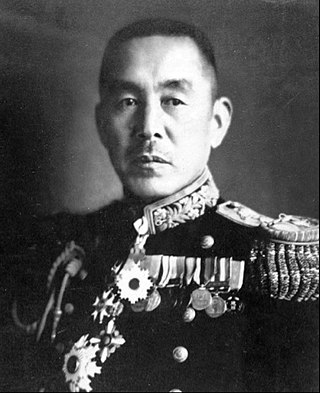
Teikichi Hori was an admiral in the Imperial Japanese Navy during the early twentieth century. During the interwar period, Hori was a prominent member of the Treaty Faction of the Navy, and opposed war against the United States and the United Kingdom. Hori was a close friend and mentor of Admiral Isoroku Yamamoto.


















